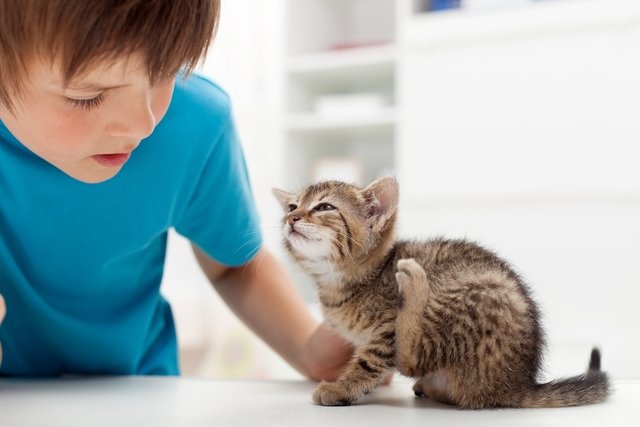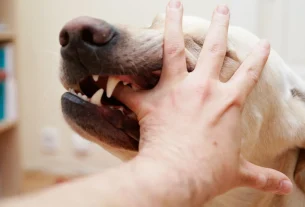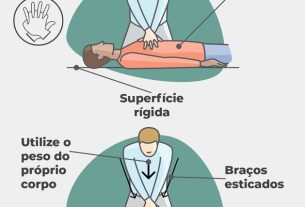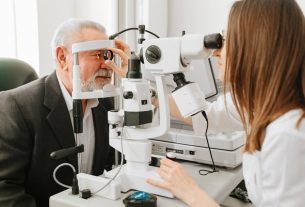Flea bites in humans can cause lesions on the skin, measuring around 3 to 10 mm in diameter, called papular urticaria, in which it is possible to identify a central point, corresponding to the bite. Generally, lesions caused by flea bites are located around the waist.
Fleas are parasites that preferentially attack animals, to feed on their blood, biting humans only as a last resort.
Treatment for flea bites must be guided by a general practitioner or dermatologist and serves to alleviate symptoms, and the use of oral or topical antihistamines and/or corticosteroid ointments may be indicated.
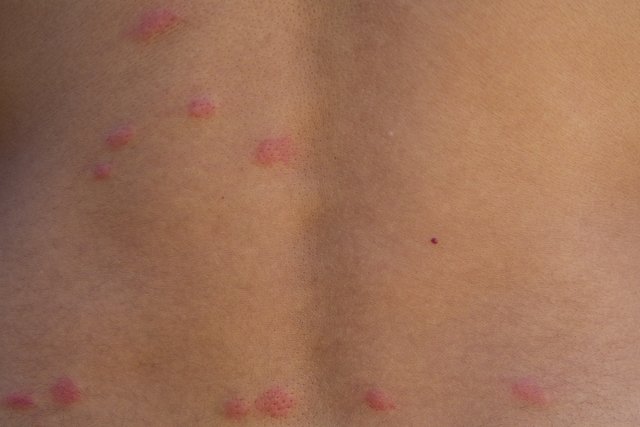
Flea bite symptoms
The main symptoms of a flea bite are:
- Red, prominent and round lesions, approximately 3 to 10 mm in diameter;
- Intense itching;
- Point in the center of the lesion, which corresponds to the site of the flea bite.
Flea bites are most common on the waist, arms and legs, that is, in places where clothing does not protect.
Possible complications
In some cases, flea bites can give rise to infections, which can result from intense scratching, which facilitates the entry and development of bacteria in the region, which can cause symptoms such as fever, headache, body pain and weakness, for example.
Furthermore, flea bites can also cause an allergic reaction in people with hypersensitivity to the saliva of these parasites, resulting in excessive itching, difficulty breathing and swelling.
See which ointments are recommended for treating insect bites.
How the treatment is carried out
Flea bite treatment serves to alleviate symptoms, so the doctor may recommend the use of soothing creams, oral or topical antihistamines and/or glucocorticoids in cream or ointment.
In addition, home remedies can also be used to soothe itchy skin, such as taking a bath with cold water, applying a wet compress with chamomile tea or making an oat paste on the spot.
How to prevent flea bite
To prevent flea bites, it is recommended:
- Keep domestic animals dewormed in order to prevent the spread of parasites;
- If the animal has fleas, it is recommended to give the animal a pill orally, according to the veterinarian’s instructions, to help eliminate the fleas, in addition to taking a bath with a specific shampoo;
- Regularly wash the bed the pet sleeps on, rugs and carpets, weekly;
- Keep the cushions and corners of the sofa clean, as fleas look for deep, hidden and dark places to lay their eggs, making it very difficult to find them, and it is therefore important to clean these places well with the use of a Vacuum cleaner with great power and disposable bag.
For external environments, such as backyards and places where pets roam, they can be sprayed with specific products. Furthermore, washing the floors is also an effective measure, as immature forms of fleas do not like humidity. Alternatively, you can use companies specialized in pest control.
5 frequently asked questions about fleas
Some frequently asked questions about fleas are:
1. Can I get a flea bite even if my house has not been lived in for several months?
Flea eggs can take weeks or months to hatch and may lie dormant during the winter, releasing the flea when the house or garden is re-inhabited.
2. Why do I keep getting bites if the bedding has no signs of fleas?
Newly adult fleas are very small, as are their feces, so they easily go unnoticed. Even when washing bedding, fleas can get stuck in the clothes or in a hidden place in the room.
3. If my pet has fleas, would it also be bitten?
Generally, fleas only bite humans as a last resort. Therefore, if the domestic animal has an infestation, or even if one of the people living in the house is bitten, this does not mean that everyone is infected.
Furthermore, it is important that the person knows that even if the animal has fleas, they may not be visible, as when they lick their fur, they can hide in less visible areas.
4. My child appears to have a flea bite. If it’s a flea, would I have it too?
Children have a more severe reaction to flea bites than adults. The reaction to the bite decreases over the years, because the person gains immunity to flea saliva and tolerance to their bites, which is why the adult may have more discreet or even absent pimples.
5. My pets only live indoors, can they get fleas?
If a human carries a fertilized female flea into the home, domestic animals can become infested within a few weeks due to their eggs.
Bibliography
- CHILDREN’S HEALTH. Fleas and prurigo strofulum. 2016. Available at: <https://saudeinfantil.asic.pt/images/download-gratuito/2016-Abril/ab_51-52.pdf>. Accessed on May 28, 2020
- ZOETIS. Fleas – Important information. 2019. Available at: <https://www.zoetis.com.br/_locale-assets/arquivos/animais-de-company/simparic/ciclo-das-pulgas-_final_.pdf>. Accessed on May 28, 2020
- MOREIRA, Ana et. to the.. Papular urticaria – Literature review. PORTUGUESE JOURNAL OF IMUNOALLERGOLOGY. Vol.22. 4.ed; 279-287, 2014

Sign up for our newsletter and stay up to date with exclusive news
that can transform your routine!
Warning: Undefined array key "title" in /home/storelat/public_html/wp-content/plugins/link-whisper-premium/templates/frontend/related-posts.php on line 12
Warning: Undefined array key "title_tag" in /home/storelat/public_html/wp-content/plugins/link-whisper-premium/templates/frontend/related-posts.php on line 13

